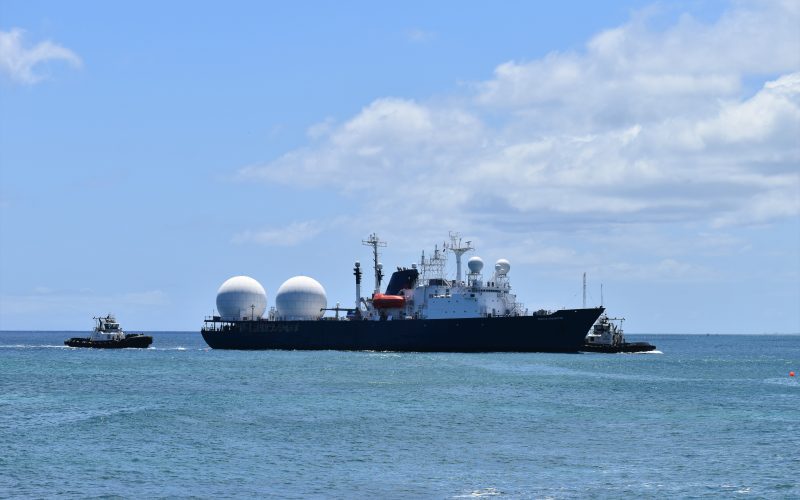Cheniere Energy Inc. is the world’s largest exporter of liquefied natural gas (LNG). The company recently announced a major expansion plan that will double its production capacity, with the goal of making the US the biggest LNG supplier in the world. Cheniere is betting big on its longtime plan to export US natural gas and it looks like that bet could pay off for years to come. In this blog post, we will explore how Cheniere’s expansion plan could secure its long-term success and what it means for the US energy industry.
Who is Cheniere?
Cheniere Energy is an American energy company based in Houston, Texas. The company is engaged in the business of natural gas liquefaction and exports, and owns and operates the Sabine Pass LNG terminal in Louisiana. Cheniere is the first and only company to have exported LNG from the United States.
Founded in 1993, Cheniere has been a pioneer in the development of the US natural gas export industry. In February 2011, Cheniere secured its first long-term contract to sell LNG from its Sabine Pass facility. Since then, it has signed additional contracts with major energy companies around the world, including BG Group, Total, Centrica, CNOOC/Nexen, KOGAS, GAIL India Ltd., and PetroChina Company Limited.
Cheniere’s expansion plans are focused on continuing to grow its LNG export business. The company is currently constructing two new liquefaction trains at its Sabine Pass facility which are expected to come online by 2019. When completed, these trains will more than double Cheniere’s production capacity from 4 mtpa to 9 mtpa.
What is their expansion plan?
Cheniere Energy’s expansion plans are focused on increasing its liquefied natural gas (LNG) production capacity. The company is currently building two new LNG plants, which are scheduled to come online in 2019 and 2020 respectively. These new plants will have a combined production capacity of approximately 9.6 million tonnes per annum (mtpa), which would more than double Cheniere’s current LNG output.
In addition to the two new plants, Cheniere is also planning to expand its existing Sabine Pass LNG facility. The expansion will add two additional liquefaction trains, which are expected to come online in 2021 and 2022 respectively. These trains will have a combined production capacity of approximately 7.8 mtpa, bringing the total capacity of the Sabine Pass facility to around 19 mtpa.
The expansions at both the new and existing LNG facilities are being funded by a combination of equity and debt. Cheniere has already raised over $10 billion in equity through private placement and public offerings, and it has secured around $20 billion in debt financing from various lenders.
Once all of the planned expansions are complete, Cheniere will have an aggregate production capacity of approximately 29 mtpa, making it one of the largest producers of LNG in the world.
Why are they betting on US gas exports?
There are a few reasons why analysts are betting on US gas exports to last for years to come. First, the US has an abundant supply of natural gas, thanks to the shale boom. This has led to lower gas prices in the US, making it more economical to export gas. Second, demand for natural gas is growing globally, due to its cleaner burning properties. This creates a market for US exports. Finally, Cheniere has been investing heavily in infrastructure to support its export business. These investments suggest that the company is confident in the future of US gas exports.
How will this affect the US economy?
Natural gas exports from the United States are on the rise, and Cheniere Energy is betting that this trend will continue for years to come. The company has announced an expansion plan that would nearly double its export capacity from the Gulf Coast by 2023.
This is good news for the US economy, as natural gas exports are a major source of revenue. In 2017, they generated $30 billion in economic activity and supported over 200,000 jobs. The expansion of Cheniere’s export facilities is expected to create even more jobs and economic growth.
The US natural gas market has undergone a major transformation in recent years, thanks to the shale boom. This has led to a sharp increase in production, making the United States one of the world’s leading producers of natural gas. However, there has been limited infrastructure in place to export this gas overseas.
Cheniere Energy changed that in 2016 when it opened the first liquefied natural gas (LNG) export facility in the United States. Since then, other companies have followed suit and there are now four LNG export terminals operational in the country. These facilities have helped to boost US natural gas exports, which reached a record high of 3.6 billion cubic feet per day in 2017.
The expansion of Cheniere’s Sabine Pass LNG export facility will be a major driver of continued growth in US natural gas exports. When complete, it will have a capacity of 8 bcf/d, making it
What are the risks of this expansion plan?
The risks of this expansion plan include:
1) Over-reliance on US gas exports: If US gas exports decline, Cheniere will be left with excess capacity and debt.
2) Lack of customers: There is a risk that Cheniere will not be able to find enough customers for its expanded capacity.
3) Price fluctuation: The price of natural gas is volatile and can fluctuate significantly. This could impact Cheniere’s ability to repay its debt and make a profit.
4) Regulatory risk: Changes in government regulations could impact Cheniere’s business model and make it difficult to operate profitably.
Conclusion
In conclusion, Cheniere’s expansion plan is a bold move that could pay off handsomely if the US gas export market continues to be strong. This bet on the future of the US gas export industry carries some risk, but with Cheniere’s track record of success and its financial resources, it looks set to become a major player in this sector for years to come. If they’re successful, they will have secured their place as one of America’s top energy companies and helped secure our nation’s global standing in the energy market.











